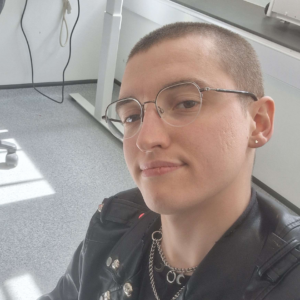
Sophie Fasey
University of Birmingham
Project
Uniting taphonomy and tomography to illuminate early actinopterygian evolution
Supervisors
- Sam Giles
PhD Summary
I study fossilised soft tissues in ray-finned fish, the group accounting for the majority of modern fish species. Multiple fossil sites around the UK preserve previously unreported 3D soft tissue structures, but the processes behind this remain mysterious. I will use decay experiments to learn how soft tissues can be preserved, and will study how to improve imaging techniques to visualise them clearly in 3D. I will investigate how these can shed light on the origins and diversification of this important fish group.
Previous activity
I completed a BSc in Biochemistry at the University of Birmingham, before changing fields to Palaeobiology at Bristol for my MSc. In the year before my PhD I worked as a research technician in the Earth Sciences department at Birmingham, making data on fossil fish available through the PaleoBiology DataBase
Why did you choose doctoral research?
I developed a taste for research during my MSc, and I am looking forward to the challenge of a more independent research project. Postgraduate research also gives me the opportunity to help with teaching undergraduates, which I have found really rewarding so far.
Why did you choose CENTA?
A successful application to a CENTA project comes with guaranteed funding, which really streamlined the application process for me. Earth sciences research can be very expensive, so securing funding was absolutely essential. CENTA has also already paid for me to attend training that will massively benefit me in whatever career path I end up on.
Future plans
The world of scientific research is always changing so I try to keep my options open. My current goal is to stay in academic research – this studentship will equip me not only with research skills but with experience, a strong academic network and a broad base of communication skills to support me through this career path or any other.
